Features of glasses for a computer
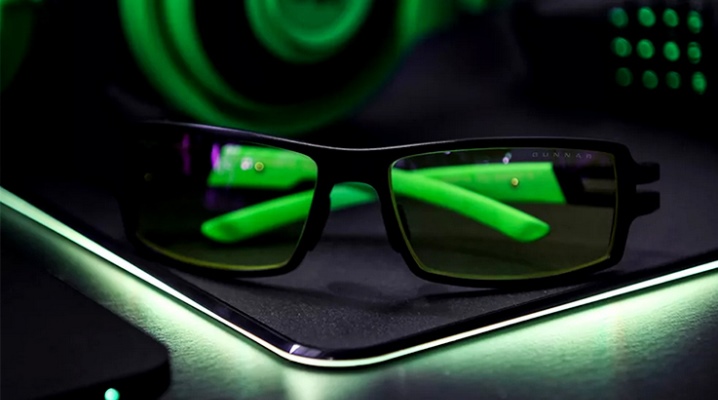
Computers are literally everywhere today - millions of people around the world work at monitors, and then spend their free time at them. It is widely believed that the radiation from the display is not very useful for vision, and special computer glasses should at least partially protect it from it. So it is or not - let's try to figure it out.
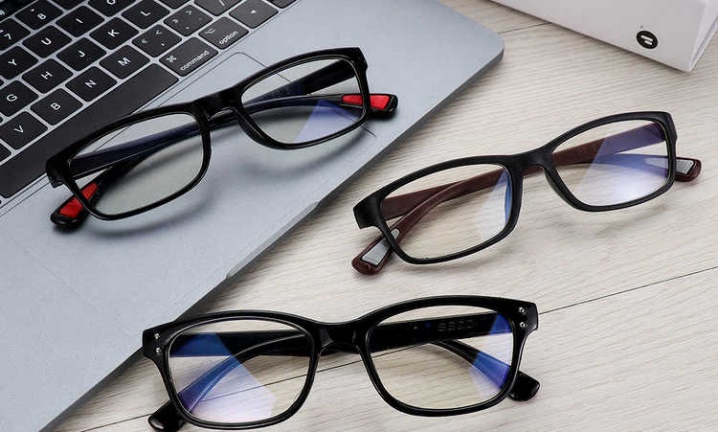
What is it and why are they needed?
Computer glasses are designed to protect the eyes from radiation that they specifically filter. In itself, such radiation is not dangerous, because we are talking about ordinary rays of the blue-violet spectrum, but the problem of a modern person is how many such rays he receives. The blue-violet range is characterized by a short wavelength, and therefore quickly dissipates in the eye and spoils the contrast of the picture we see.
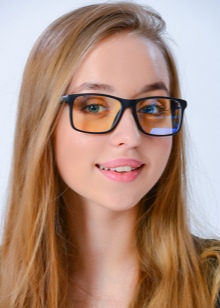


The far-reaching consequences of working on a PC or even regularly reading messages from a smartphone can include worsening myopia, development of cataracts, or retinal degeneration. However, it is possible to understand that you have sat at the computer much faster - the user will feel itching and burning in the eyes, characteristic dryness in them, while the vision will "float" and double. If you don't react, your head may hurt.

Computer goggles are designed to even out the balance of colors so that vision does not deteriorate. In theory, they will help protect against fatigue and maintain normal vision, but the question remains - does it really work, and if so, how effective.
Benefit and harm
On the one hand, you can often hear that professional ophthalmologists recommend protective glasses against radiation, and it would seem that they should be trusted. On the other hand, everyone seems to know that radiation is harmful, and there are special glasses, but for some reason they still do not use such optics. All this can be explained very simply: the reality, as always, is that any decision has its own pros and cons.

Optics have many advantages. First of all, it helps to protect the eyes from excessive amounts of blue and violet rays, just by not missing some of them. In addition, a good modern model must also suppress the effect of electromagnetic radiation.
Finally, users often note that thanks to glasses, the monitor is no longer so glare, which means that information is easier to perceive, therefore, eyes get tired less.
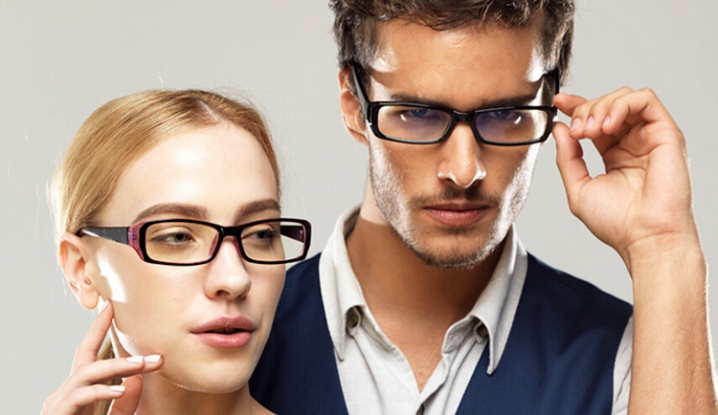
However, there are arguments against wearing such glasses. First, computer glasses, like ordinary glasses, are selected for each person individually. When choosing, everything matters - the current state of vision, its features, as well as the typical removal of the face from the screen during work. An attempt to purchase such optics without first consulting an ophthalmologist can create even more problems than refusing to wear glasses in principle.

Secondly, even glasses are not omnipotent - they cannot be worn all the time, otherwise you will get another problem in the form of a rubbed bridge of the nose. Even the presence of such optics and the absence of discomfort still means that you will take timely breaks from work.
How do they differ from ordinary ones?
Computer glasses, like ordinary glasses, can also correct vision in parallel with their narrow-profile task, but they still differ in that they have additional functions in the form of filtering out excess radiation. They work as a filter that limits the rays of the blue spectrum. This is achieved in one of two ways - either by toning or with a special reflective coating.
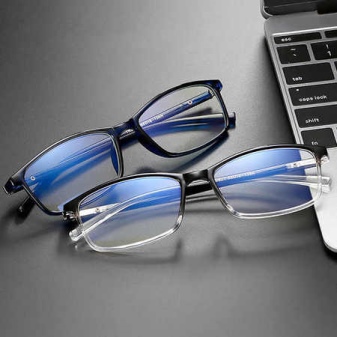
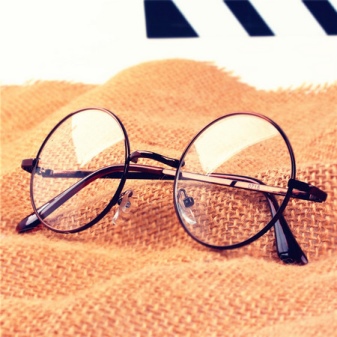
You can identify tinted glasses by their characteristic color - it is correctly called brownish, although many owners would consider it rather yellow. Such optics today are already considered somewhat outdated and insufficiently effective, as well as distorting the picture quite significantly.
Glasses with a reflective coating known as a blue filter have an almost colorless lens, which, however, has a slight bluish tint.
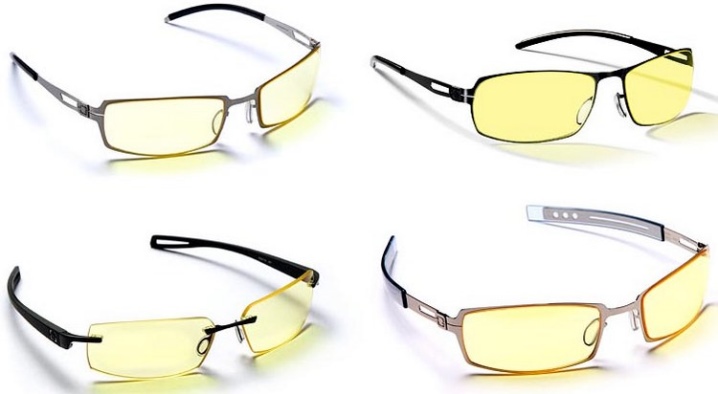
Species overview
The variety of specialized protective glasses for working with a PC is huge - in addition to the fact that they are all spectral, the model can be with or without diopters (correction of visual impairments). Spectacle lenses, depending on the preference of the wearer, can be round, rectangular or any other as a tribute to fashion. But, when it comes to the classification of such optics, the emphasis is usually placed on specific properties, which we will now consider.
Anti-glare
Optics of this type are also called polarizing optics. Its lenses are equipped with a special anti-reflective coating, which allows you to more accurately perceive visual information, including in bright light.
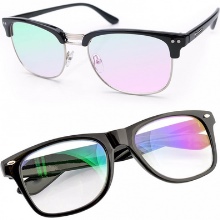
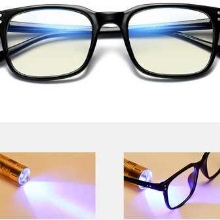
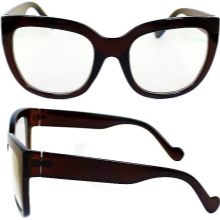
Anti-glare in this case is largely synonymous with the concept of "anti-stress" - without experiencing an excessive wave-like load, the eyes get tired much more slowly, in fact, they are protected from constant flashes with the same switching of tabs in the browser.
Monofocal
This solution is the most common - the entire surface of the lens has approximately the same properties, so monofocal glasses are well suited for users with normal vision. They are not very suitable for people with visual impairments, because at any angle of view they give blurring of objects.
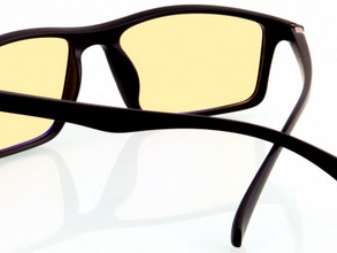
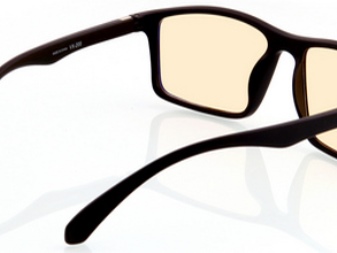
If you are not complaining about vision, such optics will help you to fully cover the entire display space at a glance.
Bifocal
You can even identify such glasses by their appearance - each lens is visually divided in half into a lower part and an upper one. This is done for a reason - the halves of the lenses are designed to solve different problems. The upper part is focused on making it comfortable for the user to perceive the image on the monitor, taking into account the distance from the display it is usually customary to sit in an average office. The lower part of the bifocal lens allows you to lower your gaze and perceive information from a source in your hand or on a table - it can be a smartphone or any document.
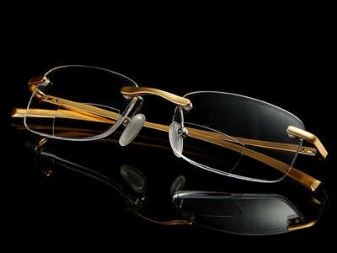
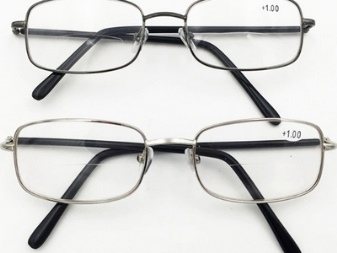
Thanks to the cunning of ophthalmologists, a person gets the opportunity to do without constantly removing and putting on glasses., but at the same time such glasses are much more difficult to find. In any case, they are aimed at people with imperfect vision, while even the optics itself helps to ensure that all objects located noticeably further than the monitor look blurry and indistinct.
Progressive
Purely visually progressive glasses are similar to monofocal - their lens does not have any clearly defined division. Nevertheless, in fact, it also has zones, like a bifocal, only here there are not even two, but three!
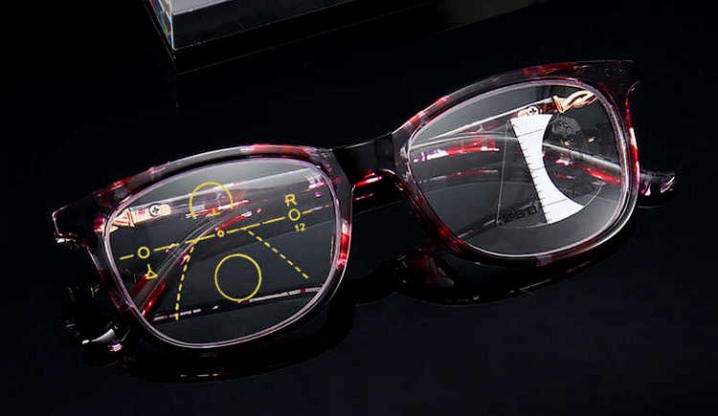
The lower part, like that of bifocal optics, is reserved for near objects, the wide middle part is for working with a PC, but the upper third of the lens is focused on viewing distant objects.
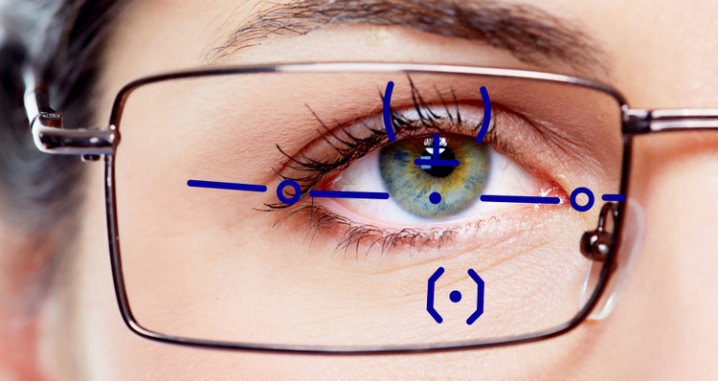
Such glasses are convenient in that they allow you to see objects equally well at any distance, but the complexity of making the lens makes them expensive.
Lens materials
Today, the vast majority of computer glasses are made either from mineral raw materials (different types of glass, close to classical), or from polymers (conventionally plastic).
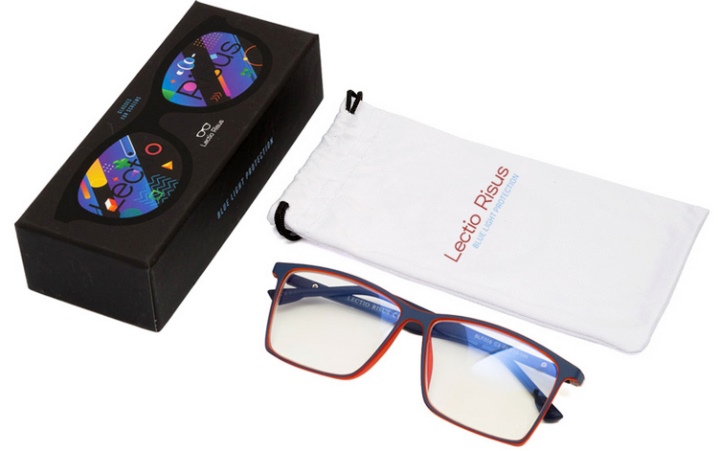
If we focus purely on optical characteristics, then glass is certainly better - it provides more accurate color reproduction and refracts light less. Glass lenses are also good for their resistance to mechanical wear - they are practically indifferent to wiping. At the same time, their disadvantage is called low resistance to impacts, as well as a tangible weight - such optics greatly squeeze the bridge of the nose in a day.
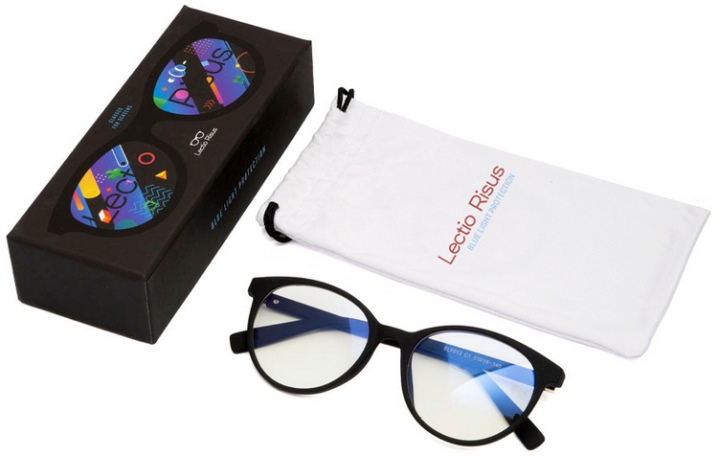
Accordingly, the advantages and disadvantages of polymer lenses are completely opposite. Glasses with such lenses are very light, they are comfortable, and they also do not crack from the slightest impact - however, they can lose transparency from abrasion.
In addition, lenses of this type initially convey the picture a little worse, although, in fairness, it is very difficult to see the difference with the naked eye.
The best brands
As is the case with many other products, most consumers do not at all seek to delve into the intricacies of the correct choice of products - after all, you have to get into the "jungle", understand the criteria, think and compare. Instead, in the opinion of the layman, it is worth trusting an eminent brand - since its product is in demand in the market, it means that it cannot be a priori bad. This logic is not always true and correct, but in a sense it is fair, and if so, let's go through the most famous companies that produce protective computer glasses.
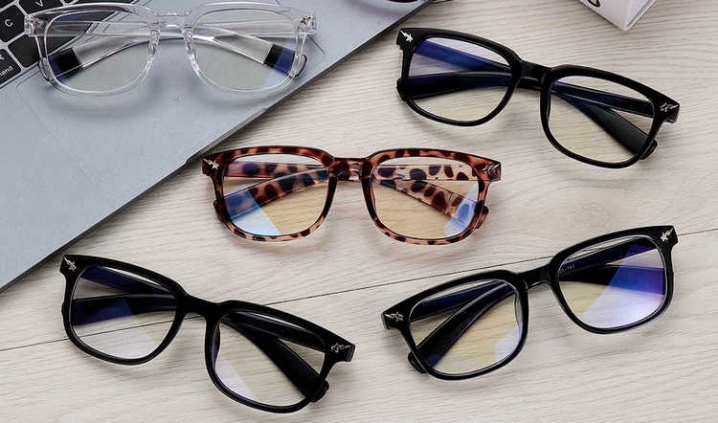
Our rating deliberately does not provide for the distribution of places - it is impossible to objectively determine a certain leader. The same convenience is a purely subjective concept, and optics that are convenient for one person may not be suitable for another at all. For this reason, our top is compiled mainly on the basis of the popularity and representation of brands in specialized retail outlets. In order not to single out anyone in vain, we will split the products by country, especially since optics from a particular state often have common features, even if the manufacturers are different.
- South Korea. This is one of the most computerized countries in the world, which is distinguished by a huge presence of high technologies in all areas and a careful attitude towards specialists. Local computer glasses companies are most often praised for their high-quality and highly durable lenses, as well as for their stylish design. Korea's leading brands in the industry are Matsuda and Glodiatr.
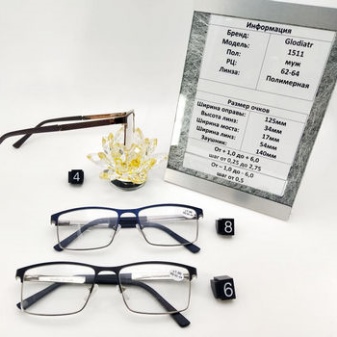
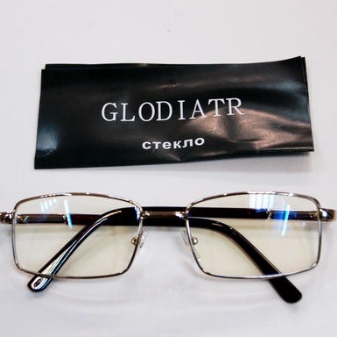
- Russia. A domestic manufacturer, if any, is worth mentioning always and in any industry. The reasons for this are obvious - firstly, due to the lack of logistics costs, its products are slightly cheaper, secondly, they are well represented in domestic stores, and thirdly, support of the native economy can be considered socially responsible behavior. In the case of computer glasses, a fourth argument is added - we make such products pretty well. The most striking representative of the domestic industry is the firm "Alis-96", which produces the so-called glasses of Academician Fedorov.
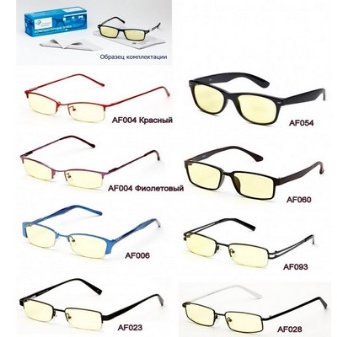
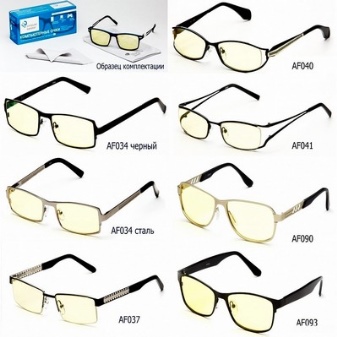
- The rest of the world. Although the majority of Russian and South Korean glasses are in Russian stores, such optics are also produced in other countries of the world, and they are also of high quality. We will not look for common features for such a team of hodgepodge, but we will list other brands that have also won respect among those who spend a lot of time at the computer - these are Seiko, Gunnar, Bradex, Halfy, DeKaro.
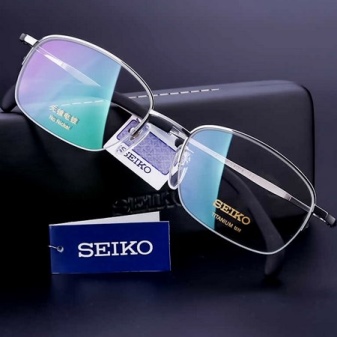
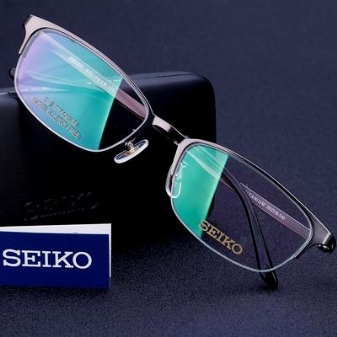
How to choose the right one?
The first thing that you need to understand for yourself once and for all is that choosing the right glasses for a PC so that they are beneficial, not harmful, is possible only after contacting an ophthalmologist. Ordinary monofocal can be chosen only if you are one hundred percent sure that everything is in order with your vision, and it does not need any correction. This is where most optics buyers come across - they do not consider it necessary to double-check if everything is in order, because they think that everything was fine last time. In the meantime, something prompted the user to think about the need to get eye protection, which means that the body is already suggesting that conditions have changed.
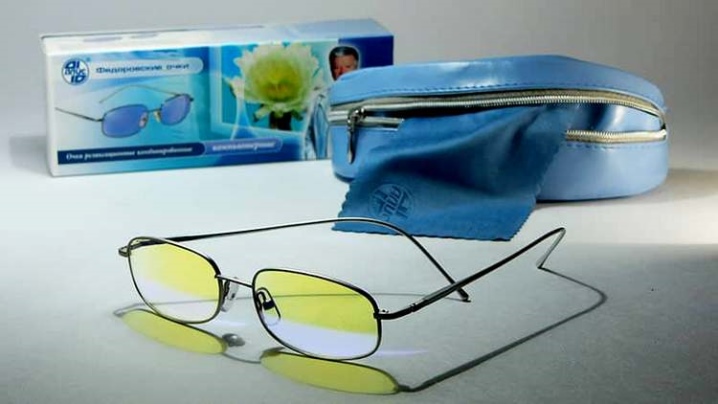
The ophthalmologist's advice may apply to another - he will tell you which special glasses you should choose. The fact that everything is in order with your eyesight does not mean that any monofocal model is suitable for you, because it is hardly worth arguing that working with text on a monitor is not at all the same as working with photo and video processing. where it is critical to distinguish the slightest shades. In the first case, glasses are needed that enhance the contrast and soften the midtones, in the second, the emphasis is on ideal color reproduction. The specialist will tell you how to explain to the shop assistant what exactly you are looking for.

Do not even think about saving on glasses - this is too fundamental equipment to risk your eyesight in pursuit of momentary benefits.
Good lenses don't come cheap, and they tend to have the biggest impact on optics pricing. However, a high-quality frame, which fits perfectly on the nose and will not chafe, also costs money. If you nevertheless decide to buy an accessory without first consulting a specialist, check with the store whether it will be possible to return the purchase if it does not fit. After purchasing, immediately start testing - sit at the computer and track your own feelings.
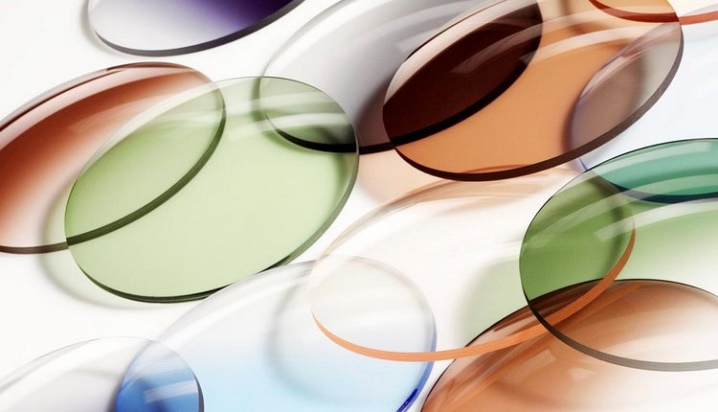
The frame, first of all, must be strong and reliable, confidently hold the lenses - if doubts arise in these qualities, get ready that soon you will have to buy glasses again. In addition, it should be comfortable for you and not put pressure on either the ears or the bridge of the nose - you do not want to replace one discomfort with another.
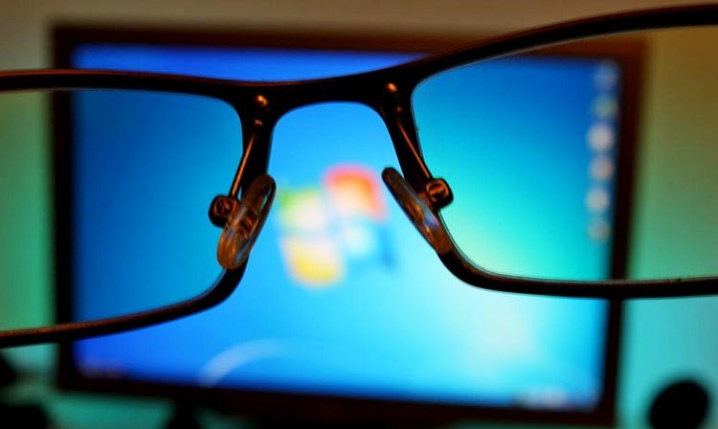
We have already talked about what lenses are made of, and why it is worth understanding it. However, glass optics are always only anti-reflective, while polymer optics may have an additional optical coating. Depending on the type of coating, glasses equipped with it “know how” to prevent the accumulation of static electricity, to be more resistant to scratches, reflect less light, do not accumulate dirt and moisture, and also neutralize electromagnetic radiation.
Finally, you should not completely ignore the design either - you are probably wearing such glasses in the office.

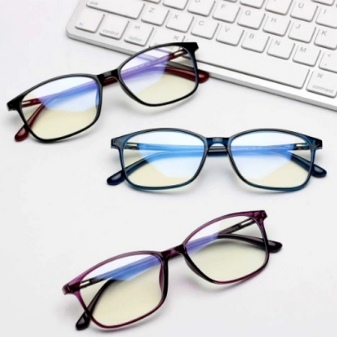
Modern manufacturers specially produce men's, women's, children's models of different colors and shapes.
However, do not forget that this criterion affects the choice of optics last, and you can not choose just beautiful glasses, ignoring the rest of the necessary properties.
Can I wear it all the time?
At first glance, computer glasses only protect the eyes from harmful radiation, and at the same time they may additionally have diopters, which provokes wearing them all the time, and not only at the workplace. However, everything is not so simple - some types of protection cannot be worn at all times. The logic here is about the same as that of medical glasses with "holes", which have no lenses at all, but there are plastic plates with small perforated holes - this can be useful for a short time, but not permanently.
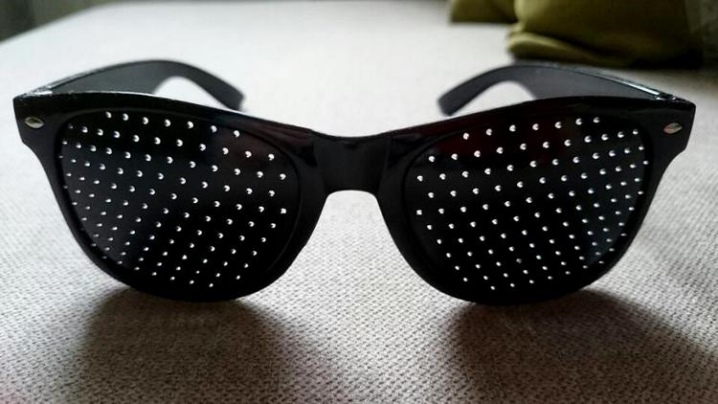
The subtlety is this: even in this article we wrote that the radiation of the blue spectrum is harmful, without specifying that not all of it is only harmful. The blue spectrum is quite extensive, it includes all shades from light blue to deep purple. In nature, violet light is present only in the sun's rays, so our body does not know how to defend against it - if we do not look directly at the sun, there will be no harm to our eyesight. At the same time, the usual blue and blue shades are useful in a certain dosage - they help to tune our sleep rhythm.
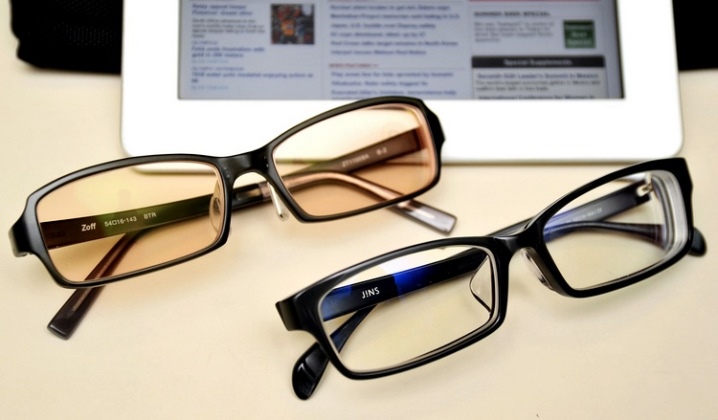
Actually, this is why falling asleep with a phone in hand is problematic. - it provides us with an excess of blue radiation, which is why we cannot sleep. Recently, however, smartphones have learned to automatically turn on a special display mode at night, in which the screen emits a minimum of blue. However, you should not think that the lack of blue is somehow better than its overabundance, because not only insomnia is bad, but also constant sleepiness.

Now, when we figured out the general theory, we will figure out what has to do with computer glasses, which, in theory, cannot be worn all day. In fact, this limitation applies to only one type of optics - old inexpensive models with yellow lenses. In their case, the manufacturers acted rather rudely - they applied tint "clumsy", with a thick layer, because of which it effectively cuts the entire blue spectrum in the bud. It is clear that the constant wearing of such glasses will not bring any good effect - you will only radically break your circadian rhythms.

Wherein the same yellow glasses, but in a more expensive and high-quality version, can act much more gently. Firstly, the tint layer on them may be less, and then they still pass at least some part of the blue spectrum. Secondly, leading companies have long understood that it is impossible to save on the health of customers, and even then they began to bother a little more, releasing glasses that selectively blocked shades, blocking the path of purple, but not cutting off the actual blue. You can already experiment with such optics, trying to wear them all day and diligently tracking your own feelings.

Review overview
Numerous comments from internet users make it clear that safety glasses certainly help, and right away. Most often, a person thinks about buying them already when certain problems begin - for example, quite noticeable eye fatigue, dryness and headache. Judging by what people write, the effect manifests itself almost instantly - on the very first working day, according to the new rules, the problems recede, and in the dynamics it is clear that this is not just a one-time improvement.
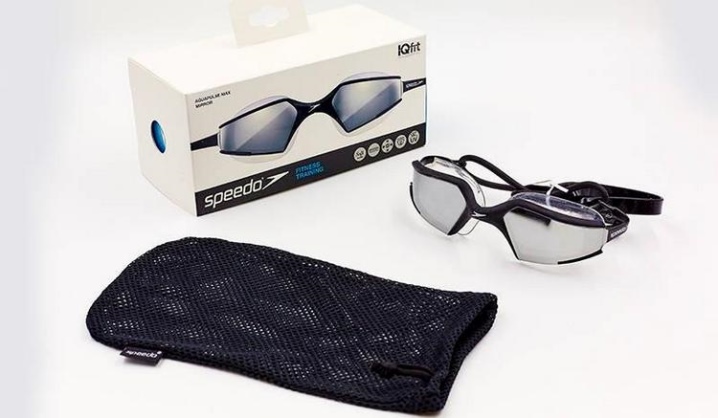
There is approximately the same opinion among doctors, but there is no such categorical opinion. Recall that any ophthalmologist will not advise computer glasses in principle, but only a model with certain characteristics that is right for you. Such a formulation in itself makes it clear that there are those glasses that will not bring any benefit, and, worst of all, even those optics that will provoke visual impairment.
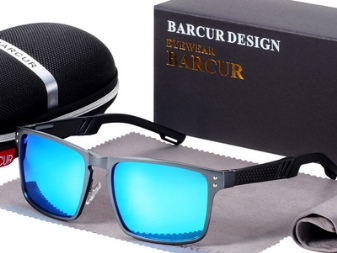
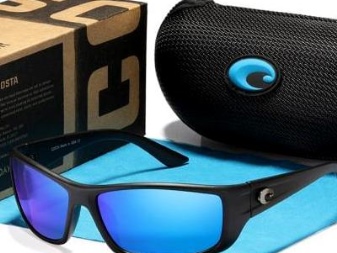
However, in general, doctors also admit that safety glasses are a useful thing in an age of full computerization.
For more information about glasses for a computer, see the video below.













The comment was sent successfully.